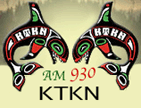 By Tim Receveur November 18, 2005
The November 15 agreement "reaffirms the importance of technology and particularly the Internet to the world" and "preserves the unique role of the United States government in assuring the reliability and stability of the Internet," said Ambassador David Gross, the U.S. coordinator for international communications and information policy at the State Department and chief U.S. negotiator at WSIS. "[The agreement] took no action with regard to existing institutions including ICANN [Internet Corporation for Assigned Names and Numbers] and others. It created no new international organizations," said Gross at a Tunis press briefing held after the agreement was adopted.
WSIS originally was convened in 2003 to narrow the "digital divide" -- the gap between information haves and have-nots. However, in advance of the Tunis summit, talks and media attention focused heavily on a disagreement among nations over Internet governance and the oversight of the main computers that control traffic on the Internet. In September, the European Union recommended a new framework for international cooperation that would see the creation of a new, multiparty "forum" to develop public policy, and international governance of the Internet through ICANN, a nonprofit company in California responsible for carrying out the technical management of the domain name and addressing system (DNS). Countries such as Iran, Venezuela, Cuba and Saudi Arabia had sought U.N. oversight of ICANN and Internet governance, but the United States firmly opposed that suggestion, maintaining that the innovation and creativity of the Internet should not be impeded by a bureaucratic governing structure. The agreement is consistent with a November 15 U.S. House of Representatives resolution calling for ICANN to remain in its present state with no additional oversight. Gross said the United States is "very pleased" over the definition of Internet governance in the agreement, saying it focuses less on "some of the technical aspects" and more on a broad range of issues including spam (unwanted e-mail), cybercrime and security-related issues. "And also very, very importantly, it focuses and refocuses and reaffirms the importance of the free flow of information, reaffirms the importance of technology for facilitating that and for the positive economic, social and political developments that can occur from that," said Gross. EXPANDING THE INTERNET U.S. Assistant Secretary of Commerce Michael Gallagher said the agreement means the world will leave the day-to-day management of the Internet to the private sector through ICANN. He said the onus now is on the world to expand the Internet to the benefit of developing countries. "The key here is to get countries around the world, but particularly in the developing world, to adopt and ingrain the use of technology to help better their economies, jobs, economic opportunities," Gallagher said. The agreement also will create the Internet Governance Forum (IGF) in spring 2006. The forum is intended to provide "an opportunity for civil society and the private sector to engage with governments on an equal footing in ways that are very unusual, particularly in the U.N. family," said Gross. "We hope this will be a springboard for a lot of progress to be made with regard to implementations of the sorts of things that were discussed both in the Geneva phase [in 2003] and also here in the Tunis phase documents," he said. According to the November 15 agreement, the IGF would have "no oversight function and would not replace existing arrangements, mechanisms, institutions or organizations, but would involve them and take advantage of their expertise. It would be constituted as a neutral, nonduplicative and nonbinding process. It would have no involvement in day-to-day or technical operations of the Internet."
Submit A Letter to the Editor
|
||


